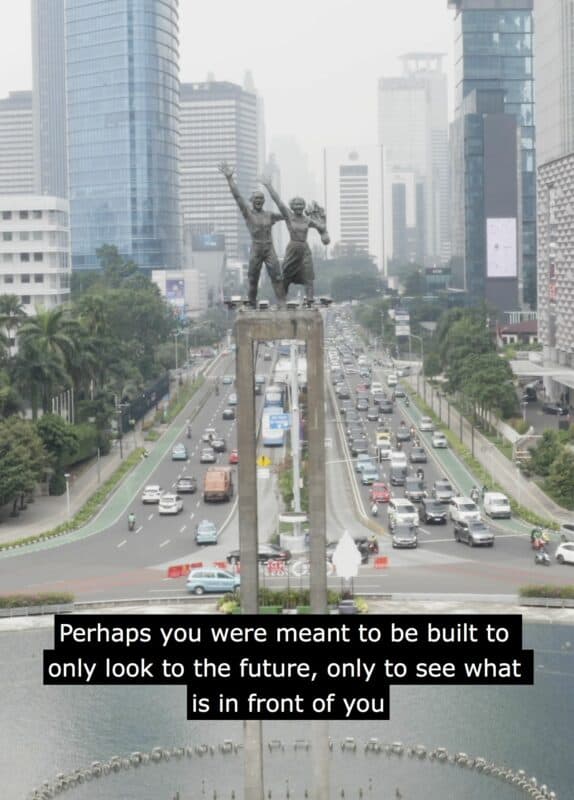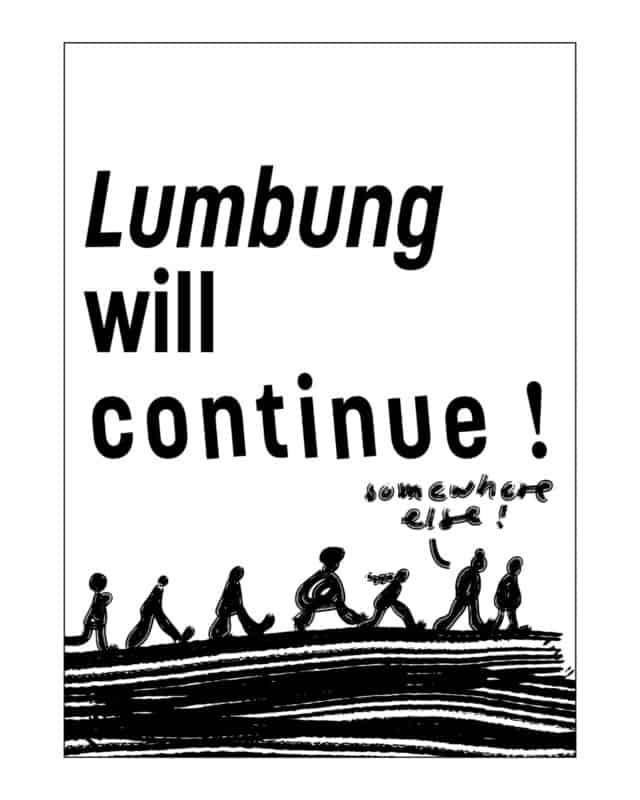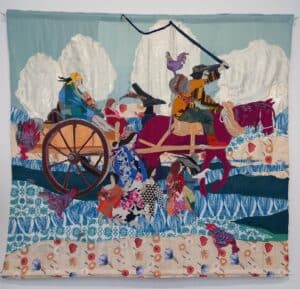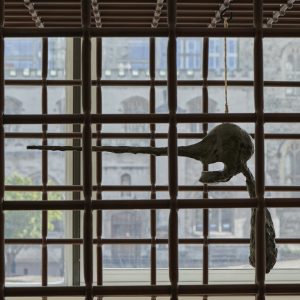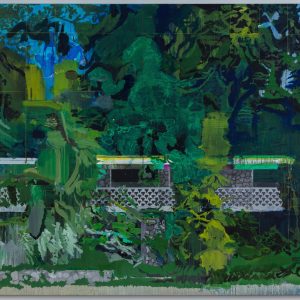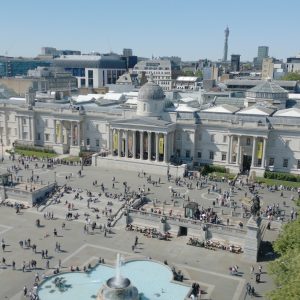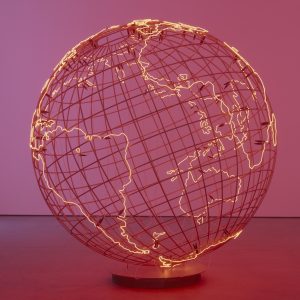A group of Berlin-based artists and researchers plan to use their artistic and multidisciplinary experience to reconceptualize Berlin as an urban biosphere, beginning in December 2022. Since 2020, artist collective Common Views and their collaborators have been working on public art projects in the biosphere areas around Berlin that address socio-ecological concerns and they were also presented at this year’s Documenta 15 in Kassel.
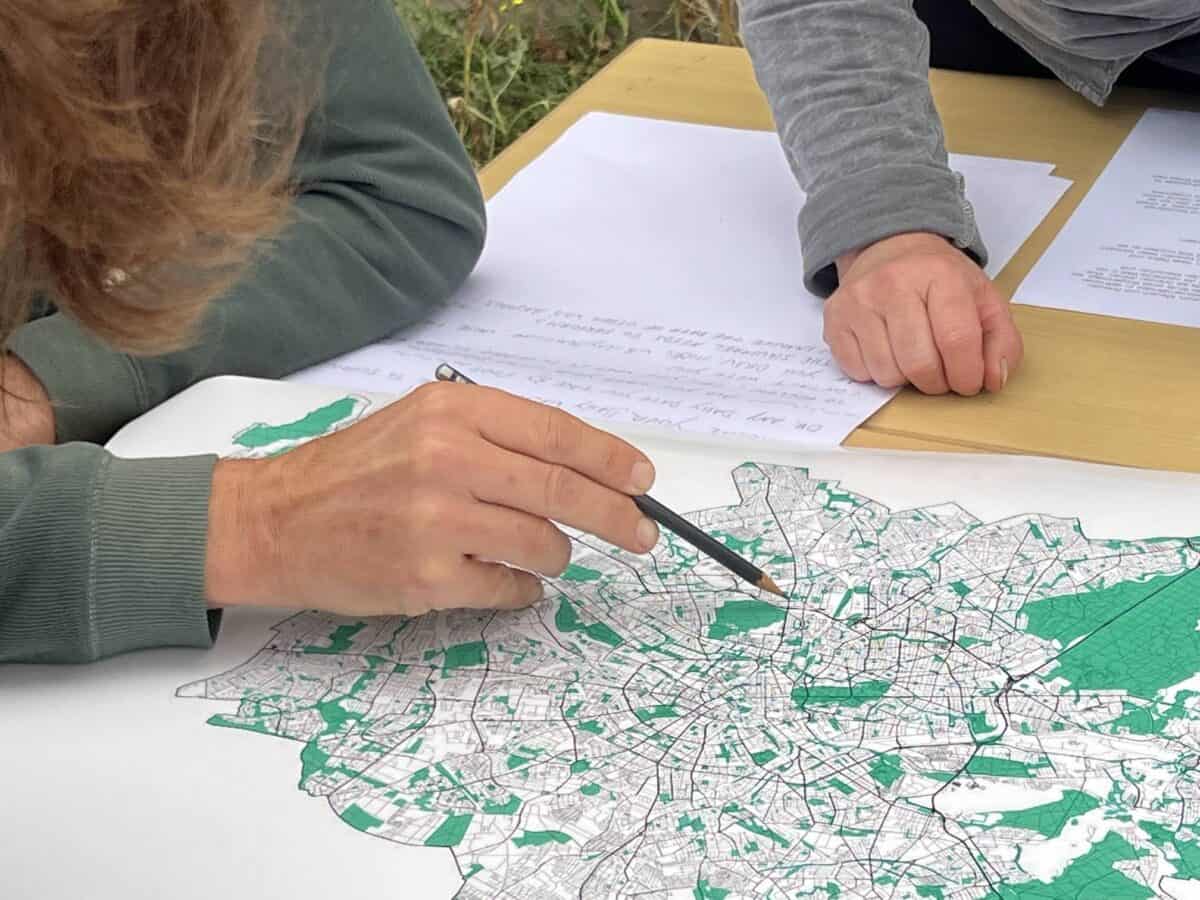
Now, Common Views are conducting the first research phase of this trans-disciplinary project, in the Berlin district of Tegel, Reinickendorf, investigating the relationship between residents, the biosphere and the city, funded by the Berliner Projektfonds Urbane Praxis. Common Views will be working with residents to develop the participatory approaches that support this process via a short series of workshops, public walks, participatory art actions, presentations and guest speakers events exploring and mediating the project themes. An exhibition will follow in February 2023. From 28 November to 2 December those living in the locality of Tegel are invited to join and work together with the artists to create creative responses to the concept.
The current phase of the project is a first step towards a longer, multi-year project in Berlin. Together with residents of Tegel, they will explore how they can participate in the implementation of this idea. Activities incorporating a range of art forms will take place in both nature and the adjacent built urban environment to explore the relationship between the two. The project is the first of its kind in Germany.
Through collaboration and public participatory art actions, Common Views propose a new approach to the city that promotes diversity, resilience, sustainability, and conviviality. Common Views will engage with urban space and reimagine it from a social-ecological perspective. They propose the city’s nature reserves as core areas of the urban biosphere, serving as nodes for building a network within the city.
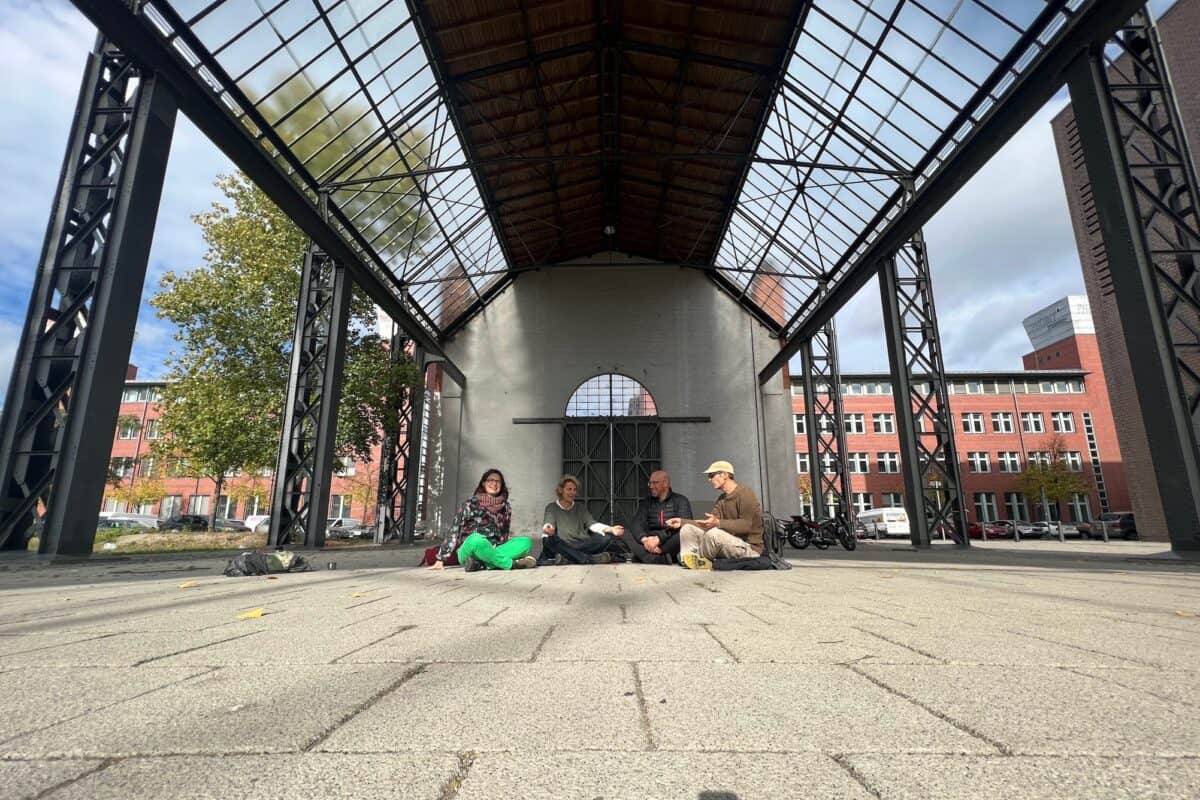
Common Views are working together with researchers from the University for Sustainable Development Eberswalde (HNEE) and the Biosphere Reserves Institute and are in conversation with Naturpark Barnim, in connection with the new Urban Biosphere Region Berlin-Barnim initiative. An important concern of the project is to broaden and rethink the understanding of the relationship between nature and culture, between city and the natural landscape, between built spaces and wild spaces: the perceived opposites of “nature” and “culture”, “grown” and “built”, “planned” and “organic” are reconsidered as potentially coexisting, and not as mutually exclusive.
They said, “Berlin is surrounded by nature conservation areas, with 47 reserves within city limits. There are 3 large, well-established Biosphere Reserves (BRs) nearby, intimately linked with the city: the waterways flowing through Schorfheide-Chorin BR and Spreewald BR run through Berlin, merging and flowing into the Elbe River BR. The green spaces surrounding the city serve as its purifying lungs and carbon sinks. And yet artificial boundaries separate “biosphere” and “city”. The UK’s Brighton is the first and only major city globally to be incorporated into a Biosphere Reserve, adopting a model that traverses such distinctions, balancing ecosystem conservation and socio-economic development. Could Berlin be next? Though seemingly utopian, we believe it is an imperative proposition, the question being not “if” but “how”.
In their work, Common Views explore the idea of Environmental Reconciliation, which touches on issues of social-ecological systems, the commons and resource equity, while focusing on the relationships of communities sharing a landscape, as a function of their relationship and connection to place. In 2021, Common Views worked in the German state of Brandenburg, within the Biosphere Reserves of Schorfheide-Chorin and Spreewald, north and south of Berlin respectively. The artists brought art-making to local communities, through participatory and collaborative methods, involving the general public and local artists in the project.
Event Listings
Sunday, 27th November, 11:00-15:00 A WALK EXPLORING THE URBAN BIOSPHERE
Common Views invite you to join them on a public walk through the forests, lakes and built environment of Berlin’s Tegel neighbourhood, inspired by the “Jane`s Walks” tradition. The tour will be led by the project’s artists and researchers, with the participation of locals, park rangers and experts, offering an exploration of the interconnected relationship of humans and nature and their shared future in the urban environment. Biologist Dr Svenja Steinfelder will introduce us to beavers of Reiswerder island and talk about the interaction between raccoons and people on the island, as well as issues of waste management and the island’s protected landscape, artist Dan Farberoff and somatic practitioner Katharina Rustler will guide an experiential journey, exploring a deeper, embodied connection to the environment, artist David Behar Perahia will guide a soundscape exploration of the conviviality of the natural with the urban, researcher Jahia Knobloch will explore the transboundary nature of water at Tegeler See, and more…
Meeting point: Aussichtsplattform, Strand am Flughafensee, Nearest bus stop: Sterkrader Str. – Lines X33 & 133 Nearest U-Bahn: U6 Holzhauser Str.
Sunday, 4th December, 11:00-15:00 THE URBAN BIOSPHERE – A COMMUNITY GATHERING
Join Common Views as we collect and harvest insights and perspectives, in a shared, creative exploration of the complex systems comprising the urban biosphere: Where does the city end and nature begin? How can nature and city exist in harmony? How can we bolster ecological and social resilience in the face of the dramatic environmental challenges facing our communities and what role do diversity and inclusion play in this?
Dr. Katja Arzt, professor at the University of Sustainable Development Eberswalde (HNEE), will lead a conversation on community interaction and the importance of positive emotion in connection with nature, artist David Behar Perahia will explore how animal aided design can create solidarity with other species, artist Dan Farberoff will introduce the concept of a post-human Commons, researcher Sina Ribak will lead an investigation of the boundaries and thresholds between the neighbourhood’s human and non-human inhabitants, and Dr. Christina Bantle of HNEE will investigate the importance of storytelling when re-imagining our relationship with nature.
Meeting point: At the gate of Strandbad Tegeler See, Nearest bus stop: Spechtstr. – Line 222
Team members
Dan Farberoff is an interdisciplinary artist and filmmaker, working primarily in mediated physical and digital presence, often in site-specific fashion, both in natural and urban environments. His works incorporate new media, video, photography, interactive technology, installation, performance and dance. The central subjects touch on issues of consciousness and embodiment, connection to place and presence, drawing on his extensive background and experience in meditation and awareness practice, in dance and embodied practice, and in digital arts practice. He is a Colombian, Swiss, Israeli and British national based in Berlin and holds an MA in Art & Performance from Dartington College of Arts (2007). His works in the field of digital media and dance, which include collaborations with the England National Ballet, the Richard Alston Dance Company and world renowned choreographers, were presented to great acclaim at festivals, including special selection at FIPA, at the London Olympics and the Shanghai Expo, and screened on major TV networks. Over the past decade his projects have increasingly focused on social-ecological issues, with an increasing emphasis on developing a deep connection to nature. danfarberoff.com
David Behar Perahia, artist and researcher, works on the seam between sculpture and architecture. He examines the interplay between art and action, and examines the concept of “place” with reference to cultural, social, historical and physical-geographical elements. Through his works, he intervenes in existing places while changing, shifting, and challenging the perception of reality as an absolute, creating an active viewing experience in which the viewers are an integral component of the work, from a concept that extends the relationship art / environment / audience. His work has been presented internationally with site-specific projects in the UK, Israel, France, Italy (including the 53rd Venice Biennale), Brazil, Germany and Greece. David founded in 2016 the MUNDI_Lab (Urban Design Interventions Lab) at the Technion Institute, IL, dealing with public space in the context of surveillance, gentrification and memory. David is a French and Israeli national based near Florence, Italy. BFA Sculpture from Gloucester University, UK, MSc in Material Sciences from Weizmann Institute of science, Israel and PhD in Architecture, from Technion. davidbehar.info
Sina Ribak (Germany, Berlin) is an independent researcher for ecologies and the arts. Her transdisciplinary training in land use, nature conservation, Common Agricultural Policy ( HNEE ), and landscape gardening intersects with her experiences in collaborative cultural work, the Art of Hosting, and ultimately, Collective Practices Research (Royal Institute of Art, Stockholm). She is co-founder of the Berlin-based Between Us and Nature – A Reading Club with artist Eva-Fiore Kovacovsky , creating a shared public space for collective reading across disciplines, and life forms, since 2017. From 2011 to 2015, Sina was the coordinator of the platform for contemporary art KIOSKOin Santa Cruz de la Sierra, Bolivia. Since a decade she is involved in translocal ecosystems ( Arts Collaboratory , Green Art Lab Alliance ) and collectives aimed at collaboratively shifting paradigms and narratives through gathering, storytelling, trust, sharing, and experimentation. With her focus on bioeconomy, biodiversity, and coexistence from a critical more-than-human and naturecultures perspective, she co-created formats for encounters at documenta fifteen , Haus der Kulturen der Welt , Berlin; Experimental field of the Museum für Naturkunde Berlin , DocFest Exchange Sheffield , and ACUD Berlin . As a lecturer and speaker, she was invited by institutions such as Jan van Eyck Academie , Maastricht; Royal Institute of Art , Stockholm; ICC, Berlin; floating university, Berlin; Institute for Advanced Sustainability Studies (IASS) , Potsdam; Free University of Berlin; Botanical Museum Berlin . Rooted in Berlin, Sina embraces several nature culture contexts, having lived and worked in Bolivia, France, Indonesia, and the UK. On the ground, social and ecological justice to her means being a member of a solidarity-based agriculture community . Sina is an alumna of the German National Academic Foundation and likes to work in German (mother language), English, French, and Spanish. sinaribak.net
